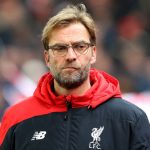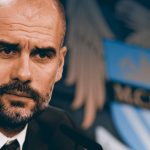After seeing Miroslav Klose and Lukas Podolski get snapped up by the likes of Germany, Poland’s football association (PZPN) is now scouting the globe’s vast Polish diaspora for talent.
Polish fans and the PZPN alike dream of reviving a long-lost golden age, with their sights set on glory on home turf at Euro 2012, after failing to make it to the 2010 World Cup.
Getting budding internationals to opt for Poland is part of the strategy.
“The goal is to never again to have cases like Podolski or Klose,” said Maciej Chorazyk, 35, the PZPN’s diaspora pointman.
The duo were born in Poland and emigrated to Germany as youngsters. Called up by Germany, they turned Poles into nervous wrecks during the 2006 World Cup and Euro 2008, when twists of fate drew Germany and Poland together.
Klose, now 31, was never tempted by Poland, but 24-year-old Podolski is a classic one-that-got-away.
At 18 he contacted the PZPN. He got the brush-off, he has said — just like Polish-born Germany team-mate Piotr Trochowski.
“We don’t want players like that to be scoring against us,” said Chorazyk.
An ardent supporter since he was six, with degrees in sociology and journalism, but no grounding in the sport business, Chorazyk created a scouting unit two years ago with nothing but a nod from the PZPN.
“It was an accident. One day I met a member of the PZPN and offered to scout for players with Polish roots. He said yes,” he said.
Chorazyk worked for free for the first year. He has a crew of volunteers in Germany, France, Britain, the Netherlands and Scandinavia, as well as further afield in Brazil, Argentina, Canada and the United States.
“We live in an age of globalisation, and we need to open up to the outside world,” said former Poland manager Jerzy Engel. “We should be above all be opening up to our diaspora”.
Football’s world governing body, FIFA, allows teams to call up players with family ties to the country. Ireland, another nation with a vast diaspora, has done so for decades.
According to the diaspora organisation Wspolnota Polska there are around 17 million people outside Poland with Polish citizenship or recent ancestry. The home population is 38 million.
The diaspora results from a tortured history of invasion, four decades of post-World War II communist rule, and over a century of economic migration.
Despite the potentially vast numbers, Chorazyk drew up a 500-name shopping list and even honed that to about 40, including juniors. Half of his picks have already turned out for Poland sides.
For the past two years, he has organised training camps in Germany for Polish-origin players in German clubs.
It’s still early days, he noted. “We’re way behind the Turks, who have three permanent offices in Germany with full-time paid staff.”
Chorazyk has already steered one relatively big name into the Polish senior side: 25-year-old midfielder Ludovic Obraniak of French first division club Lille.
Obraniak, a second-generation Frenchman, scored both goals in his inaugural Poland match, a 2-0 friendly against Greece in August. He is learning Polish, and gave an emotional rendition of the national anthem.
“We don’t promise them anything. Playing for the national side is an honour and that’s how we present it to them,” said Chorazyk.
Engel underlined an extra, non-sporting motive: “It’s about preserving a sense of Polishness amongst thousands of youngsters abroad”.
After Obraniak, Poland have three more defenders in their sights: Frenchmen Damien Perquis, 25, of Sochaux, and Laurent Koscielny, 24, of Lorient, and Polish-born German Sebastian Boenisch, 22, of Werder Bremen.
Cold War politics would have hampered diaspora recruitment before the communist regime fell in 1989. But in any case, Poland’s home-grown side was in its heyday.
Poland finished third in the World Cup in 1974 — when current PZPN chief Grzegorz Lato was the tournament’s top scorer with seven goals — and again in 1982. They also won Olympic gold and then silver, in 1972 and 1976.
They made it to the second round of the 1986 World Cup and, shortly after democracy returned, won Olympic silver in 1992.
Solid qualifying for the 2002 and 2006 World Cups and Euro 2008 raised hopes of a return to the glory days — dashed by lacklustre displays at all three tournaments.
- Soccer News Like
- Be the first of your friends!




















ABOUT THE AUTHOR
SoccerNews
Soccernews.com is news blog for soccer with comprehensive coverage of all the major leagues in Europe, as well as MLS in the United States. In addition we offer breaking news for transfers and transfer rumors, ticket sales, betting tips and offers, match previews, and in-depth editorials.
You can follow us on Facebook: Facebook.com/soccernews.com or Twitter: @soccernewsfeed.